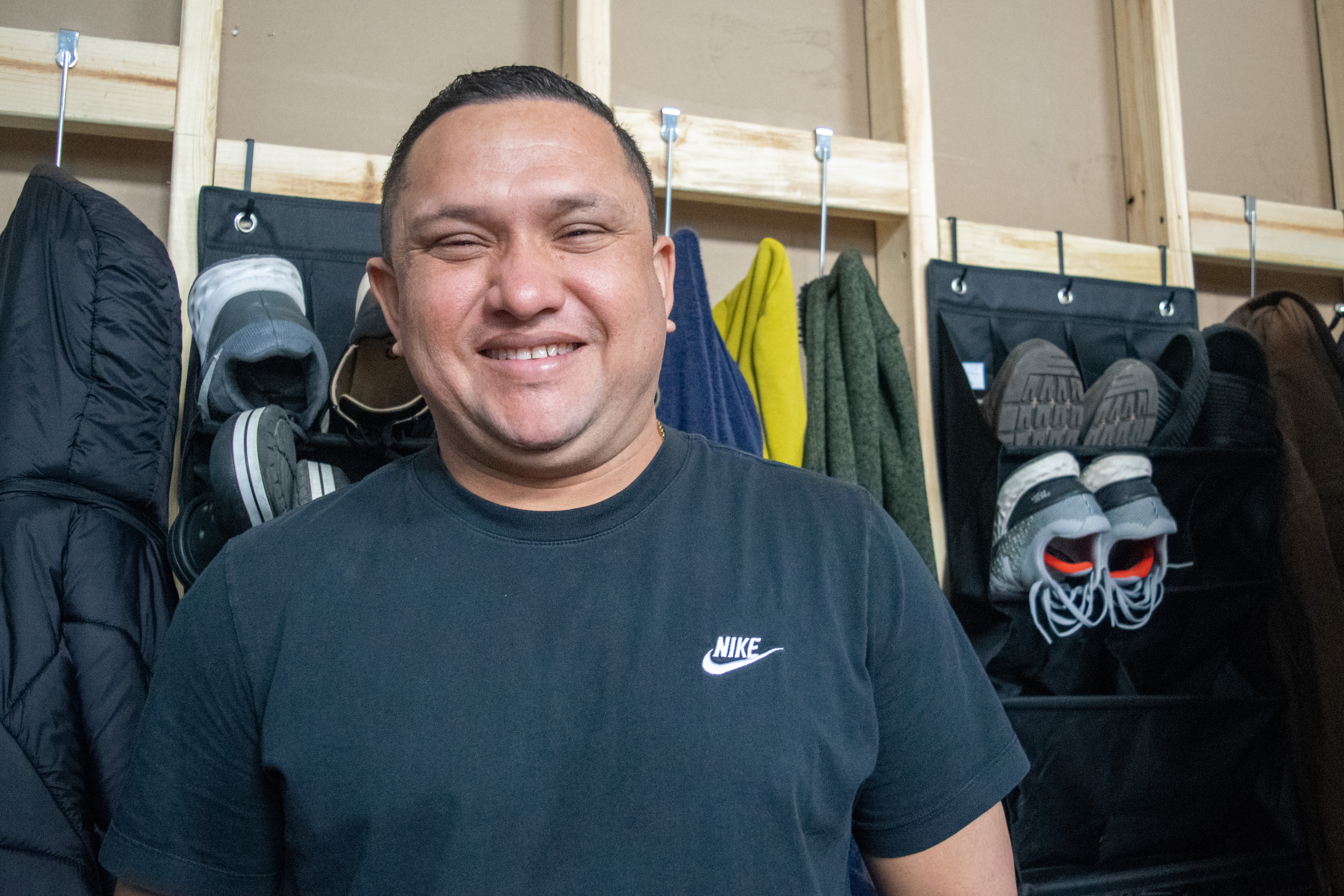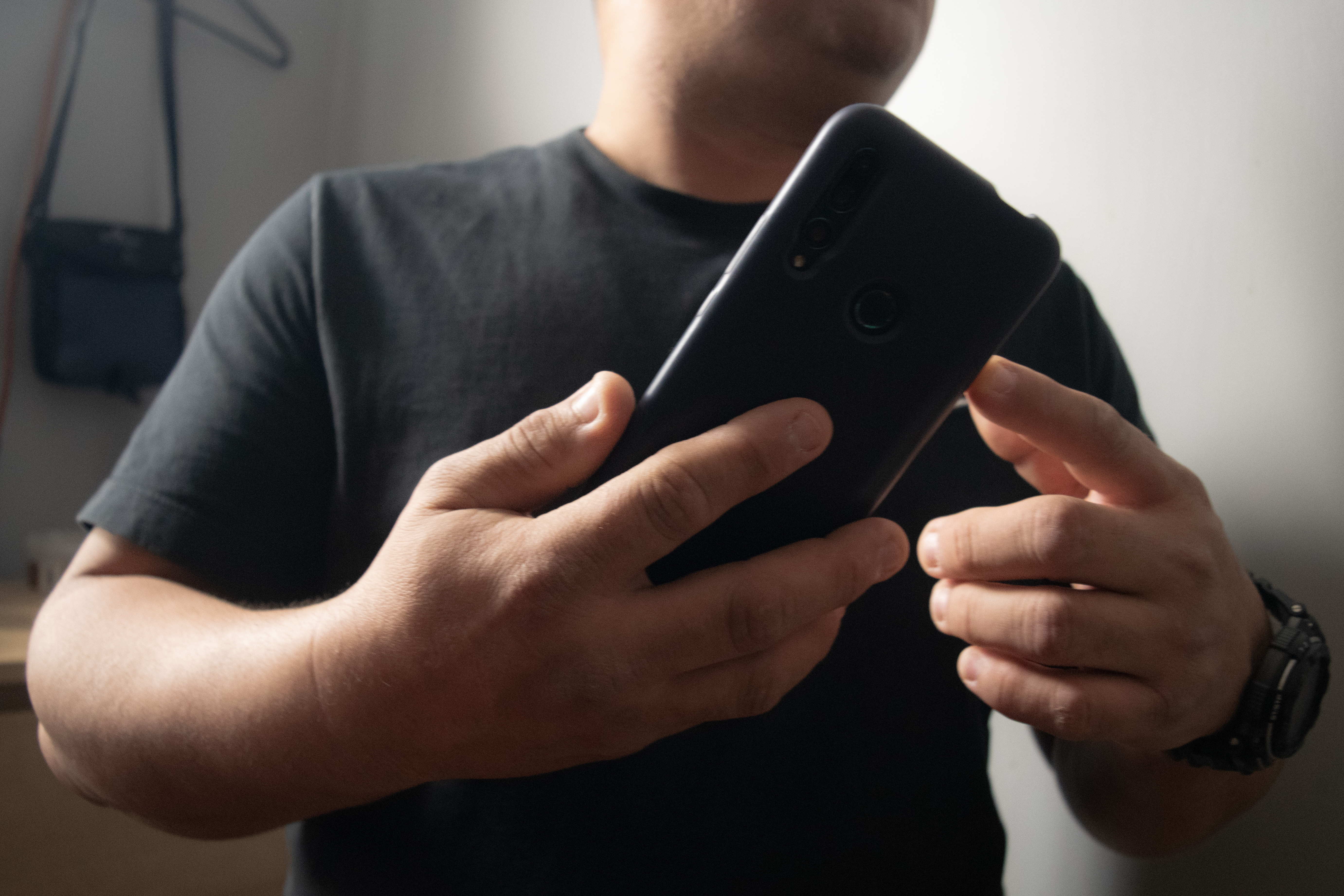You can listen to a translated version of this interview above, or listen to Victor tell his story in Spanish below.
More than 35,000 people have migrated to Chicago since August 2022, when Texas Gov. Greg Abbott began sending people to the city, mostly by bus, from the U.S.-Mexico border.
Once here, people have slept on shelter beds, city streets, airport floors and the seats of “warming” buses. They’ve camped in police station lobbies, between church pews and in the homes of complete strangers.
And as people sought out stable housing, they’ve faced shifting government policies and uncertainty. The Johnson administration announced a 60-day limit on how long migrants could sleep in city shelters — then pushed it back twice. The deadline is now March 16.
A month before the first migrants will be forced to leave the shelter, many are scrambling to get into more permanent housing.
Newcomers have personal stories of why they decided to migrate, what their travels entailed and what life has been like since they arrived.
Two migrants — Victor and Kelvis — shared their experiences with Reset. We’re using only first names at their request. Both are temporarily staying at the Starting Point Community Church in Belmont Cragin, one of 17 churches partnering with the city to shelter migrants.
Meet Victor

For much of his journey to the United States, Victor walked in a pair of mismatched Crocs, both made for left feet. With each painful step forward, he said he kept his kids in mind.
Victor is originally from Maracaibo, the second-largest city in Venezuela. He moved his family to Colombia in 2019, hoping to escape the humanitarian and economic crisis in his home country.
As he continued to struggle financially, he decided to head to the United States — but he had to leave his children behind with their mother. He crossed the border in August, and when he got to Chicago, slept outside the 25th District police station. In November, he moved to Starting Point Community Church.
He still calls with his children, Victoria and Elvis, every night.
Reset host Sasha-Ann Simons spoke with Victor. His pastor, Jonathan de la O, provided translation. Here are highlights from their conversation.
Why did you leave Venezuela?
I never thought that my country, Venezuela, would be destroyed by the influence of the government there. I had a really good job. I worked in a company that was based in Mexico, but there was a branch in Venezuela — a food distribution company. And it was going really well. We were distributing food to people. And little by little, we started seeing that the government was infiltrating or putting a hand on what we were doing. So because of that we had to stop.
When you left Venezuela, where did you go?
I was with my family in Venezuela, and we just couldn't do it anymore. We couldn’t handle it anymore. It forced me out, to move to Colombia. I never thought I was going to leave Venezuela, ever. And I waited in Colombia, to see if Venezuela would improve, but it just never did.
Was Colombia a better experience?
In the beginning, Colombia worked out for me. But at the change of the presidential election in Colombia, the economy went downhill. There was inflation, and it just made it very difficult for us.
You had to leave your family behind. How did that feel?
It was a very difficult decision, a very sad decision, to leave my family behind. When I left my kids, no one really took me seriously that I was coming to the United States. So the goodbye was just like, “Okay, how long is it going to be?” And I hoped and trusted that this was going to work out.
So are you in contact with your family right now?
Yes, of course. Every night I speak to my children, and I tell them that I miss them. And they in return, tell me that they miss me.
Tell me about your kids.
I have two children. I have a son who's 12 years old. I have a daughter who's six years old. And they are my motor, the reason why I do what I do. This is why I'm here. I want to be able to provide for them a good education, a good life. Because this is what we keep seeing in our Latin American countries — the difficulty, economically.
Tell me about your journey here. What was the experience of crossing the border into the U.S.?
Well, my journey crossing the border started in Colombia, where we crossed the jungle of Darién. And there was a family who didn't have the appropriate attire to go through the jungle. And they had a child with them — a daughter with them.
And I just was remembering my kids (and) seeing my kids in this young child. And I offered myself to the family because they were struggling. I said, “Let me help you.” And I gained their trust. And they're like, “Okay, well, you will be in charge of her, while we try to manage ourselves.” And (I) said, “Yes, I can do it, I will hand her over to you, healthy and secure and safe.”
And I did. When we were able to cross the jungle, I had the daughter and I gave her to the couple. And to this day, we still remain in contact. And the dad always thanks me for that.
I was watching you as you told me that story. You took your hand and you put it over your heart. And I could see your demeanor change as you talk more about your children. What was the last thing you heard them say, last night, when you talked to them?
I haven't been able to provide for them much for some time. But I was able to collect some money and send it to their mother for them to buy a gift.
And I didn't know that they had bought it yet. And so on the call, they said to me, “I want to show you something.” And they took out what was bought. And they said, “Thank you so much, Dad, thank you so much for these gifts. May God continue to bless you while you're over there. And we can't wait to see you back.”

So you’re here in Chicago. What has it been like since coming to the city?
It's been great. I've always wanted to come to Chicago, because of Michael Jordan. And now I'm here. I haven't gone to a game yet. But I would really love to just experience that.
When you got to Chicago, what was your living situation like?
When I got here, they took me directly to the 25th District police station. There were no showers, and there were no tents. I just had to sleep outside. I remember that it snowed one time, and thankfully, some people had brought blankets. I would cover myself, there, until we got to meet Pastor Jonathan (de la O) and he allowed us to stay at the church.
Do you see yourself staying in Chicago, or moving elsewhere?
No, I love Chicago. I’ve fallen in love with Chicago.
And the hope is that you can bring the family from Colombia?
Yes, of course. As soon as I'm established here, I plan to bring them here, in order to give them a better life.
What would you like to see from the government?
That the government helps us with the paperwork (of work permits). That they don't gift us anything for free. We want to be able to work with our own sweat, and show our children, our families, what it means to work for your items.
There’s a lot of people from Chicago listening to you and your story. What is important for them to know?
I just want them to know that I came here so I can provide a better life for my family. Like I mentioned before, all of Latin America is struggling financially. And I really believe that the United States is a land of opportunity. And I wanted to come and be able to see that opportunity flourish, not only for myself, but for my family.
This interview has been edited for length and clarity.
Reset producer Brenda Ruiz verified parts of the translation done by Pastor Jonathan de la O.



